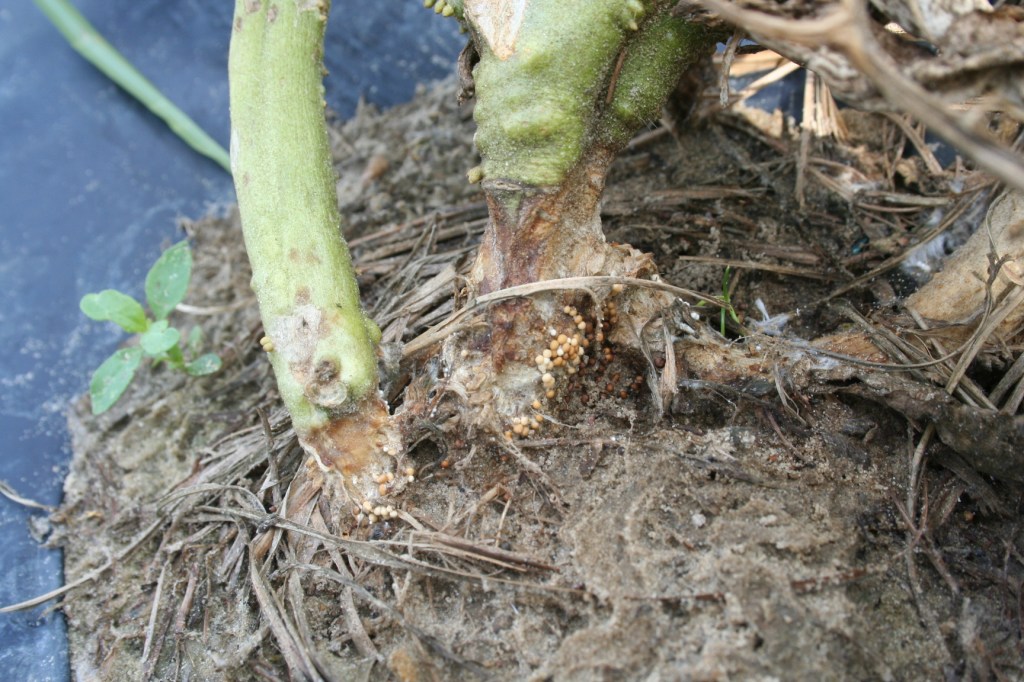From Clemson Plant Pathologist Tony Keinath.
Southern blight has become more common on tomatoes grown without fumigation throughout the southern United States. A joint project between the University of Georgia and Clemson University looked at grafting as a management option. In the 2021 trial in Charleston, SC, grafting reduced the percentage of diseased plants from 44% on nongrafted ‘Roadster’ to 7% on ‘Roadster’ grafted on ‘Maxifort’ rootstock. Even better, marketable weight was 71% greater on the grafted plants than on the nongrafted. The extra yield was mostly in the extra-large red and pink fruit categories, based on weights of fruits from 8 plants per plot.

For growers unsure about grafting, we also saw that ‘BHN 602’ was somewhat tolerant to southern blight. Although nongrafted ‘BHN 602’ had 33% diseased plants by the end of the season, marketable weight was not significantly lower than on the grafted plants, although there were fewer extra-large fruit. For information about grafted tomatoes, see trihishtil.com or vegetablegrafting.org. Note that grafted plants need to be ordered 60 days before delivery.
One response to “Grafting Reduces Southern Blight on Tomato by 83%”
[…] this year should read up on the disease before planting a susceptible crop in the same field again. Research at Coastal REC and University of Georgia in 2021 showed the rootstock ‘Maxifort’ was resistant to southern blight and increased yields in […]
LikeLike